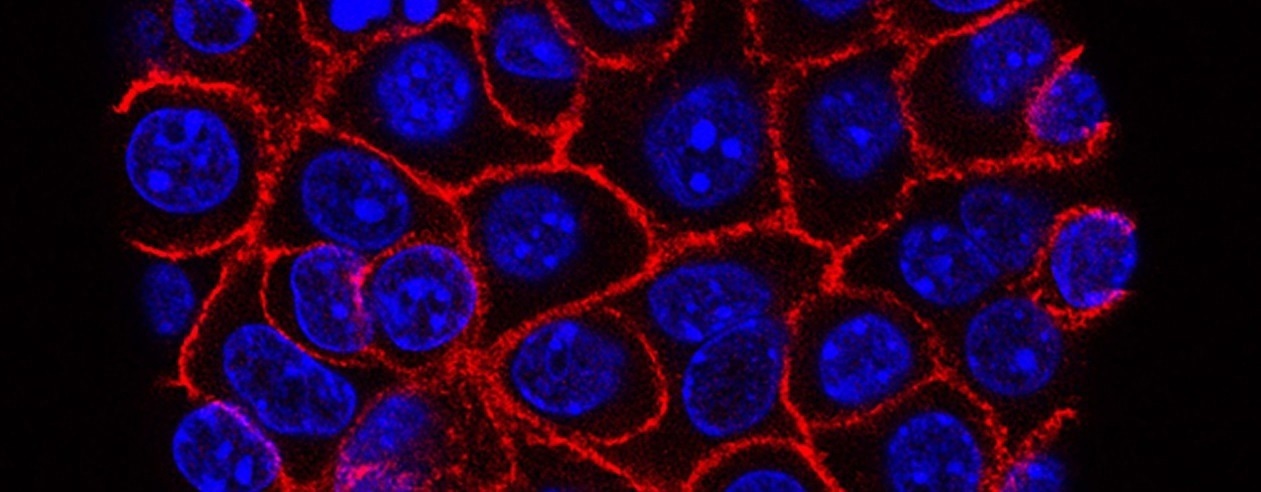Even as pancreatic cancer treatments advance, only around 9% of patients live beyond five years. Scientists have failed to identify genetic distinctions that explain why some patients live for a long time and others do not, so they have moved their emphasis to the gut microbiome.
 Pancreatic cancer cell. Image Credit: National Cancer Institute/Unsplash.
Pancreatic cancer cell. Image Credit: National Cancer Institute/Unsplash.
The microbiome is a word used to describe the collection of microbes that reside on or in the human body, including microorganisms such as bacteria. According to Jordan Kharofa, MD, little is known about the microbiome of long-term pancreatic cancer survivors.
There is emerging science suggesting that pancreas cancer survivors have a robust immune response in their tumors and data suggests the gut microbiome can influence immune response. We wondered if there was a relationship with the gut microbiome in pancreatic cancer survivors.”
Jordan Kharofa, Physician-Researcher, University of Cincinnati Cancer Center
Jordan Kharofa is also an Associate Professor in the UC College of Medicine’s Department of Radiation Oncology.
Kharofa and coworkers recently published findings in Cancer that identified many enriched species associated with improved tumor immune response in the microbiomes of long-term pancreatic cancer survivors.
The study looked at microbiome data from pancreatic cancer survivors as well as a control group of pancreatic cancer patients. They discovered elevated amounts of many specific bacterial species in the microbiomes of long-term survivors, including Faecalibacterium prausnitzii.
Little information exists to help us understand why some patients are cured from pancreatic cancer and unfortunately most are not. These species may help to promote immune response to pancreas cancer but this has not yet been proven.”
Jordan Kharofa, Physician-Researcher, University of Cincinnati Cancer Center
While it is unclear how or if these bacteria directly contribute to patients’ long-term survival, the species has earlier been linked to enhanced immunotherapy response in patients with metastatic melanoma or skin cancer.
There is a growing understanding that the microbiome is a part of the normal immune response. The importance of the microbiome in response to immunotherapy drugs in melanoma and other cancer types is well established. For the first time we are seeing that similar species are enriched in patients cured from pancreas cancer. We’re excited to explore this further and to evaluate if modulating the microbiome can be a therapeutic avenue in these patients.”
Jordan Kharofa, Physician-Researcher, University of Cincinnati Cancer Center
These bacterial species, according to Kharofa, have not been linked to any specific food, lifestyle, or genetic makeup that would provide insight into how to organically boost levels in the microbiome. Some scientists have tried attempting fecal transplants using long-term survivors’ stool, and Kharofa said the Cancer Center team is in the early stages of investigating microbiome manipulation via oral administration of bacterial species.
Source:
Journal reference:
Kharofa, J., et al. (2023). Analysis of the fecal metagenome in long‐term survivors of pancreas cancer. Cancer. doi.org/10.1002/cncr.34748.